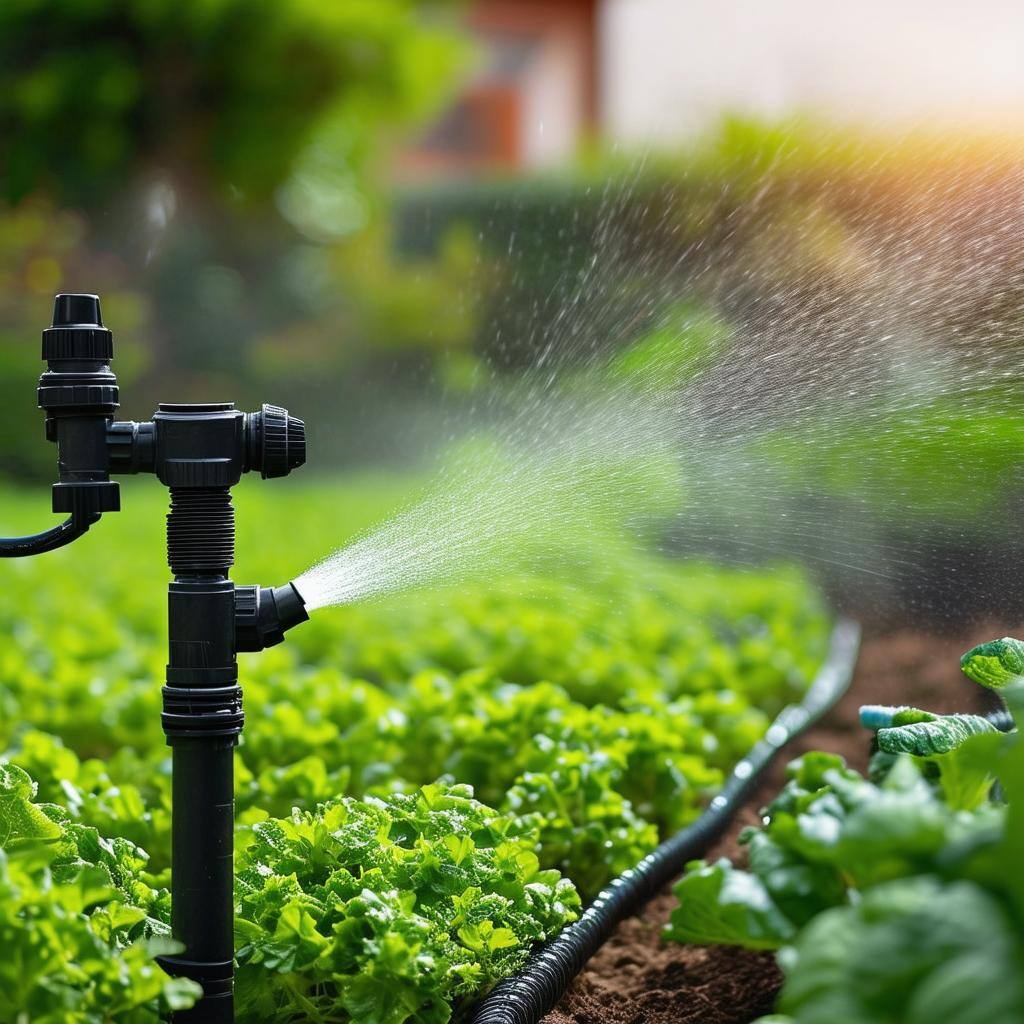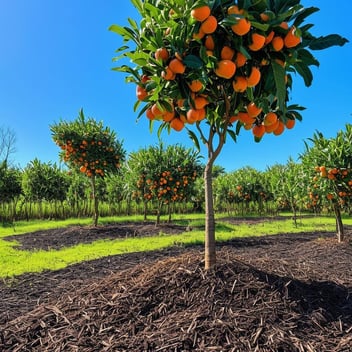Drip Irrigation vs. Sprinkler Systems: Which Is Right for Your Landscape?
Introduction
Selecting the appropriate irrigation system is pivotal for maintaining a verdant and thriving landscape. The choice between drip irrigation and sprinkler systems can significantly influence water usage, plant health, and overall garden vitality. Understanding the nuances of each method will empower you to make an informed decision tailored to your landscape's unique requirements.
Understanding Drip Irrigation
How Drip Irrigation Works
Drip irrigation delivers water directly to the root zones of plants through a network of tubes and emitters, allowing for precise hydration. This method minimizes evaporation and runoff, ensuring that water reaches where it's needed most.
Advantages of Drip Irrigation
-
Water Efficiency: By targeting specific areas, drip irrigation can reduce water usage by up to 50% compared to traditional methods.
-
Enhanced Plant Health: Consistent moisture levels promote robust root development and reduce plant stress.
-
Weed Reduction: Limiting water delivery to desired plants discourages weed growth in surrounding areas.
Limitations of Drip Irrigation
-
Installation Complexity: Setting up a drip system requires meticulous planning and can be labor-intensive.
-
Maintenance Demands: Emitters are susceptible to clogging and may necessitate regular inspection and cleaning.
-
Initial Costs: The upfront investment for materials and installation can be higher than other methods.
Exploring Sprinkler Systems
Mechanics of Sprinkler Systems
Sprinkler systems disperse water over a designated area through spray heads, mimicking natural rainfall. They are suitable for covering extensive lawns and garden beds.
Benefits of Sprinkler Systems
-
Broad Coverage: Ideal for irrigating large, flat areas efficiently.
-
Ease of Installation: Sprinkler systems are generally simpler to install than drip irrigation, especially for extensive landscapes.
-
Versatility: Adjustable spray patterns and ranges accommodate various landscape designs.
Drawbacks of Sprinkler Systems
-
Water Waste: Sprinklers can be less efficient than drip systems, with water lost to evaporation, wind drift, and overspray.
-
Disease Potential: Overhead watering can increase the risk of fungal diseases, as moisture may accumulate on plant foliage, promoting fungal growth.
-
Environmental Concerns: Overhead watering can lead to runoff and soil erosion if not properly managed.
Comparative Analysis
Water Efficiency: Drip vs. Sprinkler
Drip irrigation excels in water conservation by delivering moisture directly to plant roots, minimizing losses due to evaporation and runoff. In contrast, sprinkler systems may experience significant water loss, especially in hot or windy conditions.
Installation and Maintenance Considerations
Sprinkler systems are generally easier to install than drip irrigation, especially for extensive landscapes. However, they may require periodic adjustments and cleaning. Drip systems demand meticulous setup and ongoing maintenance to prevent clogging and ensure optimal performance.
Cost Implications
While drip irrigation systems may have a higher initial cost compared to sprinkler systems, they often lead to long-term savings through reduced water usage and lower utility bills.
Suitability for Different Landscapes
Best Applications for Drip Irrigation
Drip systems are ideal for gardens with diverse plant species, uneven terrain, or areas where water conservation is paramount. They are particularly effective in arid climates and for watering individual plants or shrubs.
Ideal Scenarios for Sprinkler Systems
Sprinklers are well-suited for expansive lawns, ground covers, and flat terrains where uniform water distribution is essential. They are also beneficial in regions with ample water supply.
Hybrid Approaches: Combining Both Systems
Integrating both drip and sprinkler systems can offer a tailored irrigation solution, addressing the specific needs of various landscape zones. For instance, using drip irrigation for flower beds and sprinklers for lawns can optimize water usage and plant health.
Environmental Impact
Water Conservation Efforts
Drip irrigation significantly contributes to water conservation by minimizing waste, making it an environmentally responsible choice.
Soil Health and Erosion Concerns
Sprinkler systems, if not properly managed, can cause runoff and soil erosion, potentially degrading soil quality over time.
Impact on Plant Health
Drip irrigation promotes healthier plants by providing consistent moisture directly to the roots, reducing the risk of foliar diseases associated with overhead watering.
Making the Decision
Assessing Your Landscape’s Specific Needs
Evaluate factors such as plant types, soil conditions, climate, and topography to determine the most suitable irrigation method for your landscape.
Budgetary Considerations
Irrigation decisions often come down to budget. While drip systems may seem costly initially, the water savings over time can offset these expenses. On the other hand, sprinkler systems are typically more affordable to install but may result in higher water bills and maintenance costs over the years.
Long-Term Sustainability Goals
If sustainability is a priority, drip irrigation aligns with eco-friendly practices by conserving water and reducing waste. However, sprinklers can also be optimized for sustainability with features like smart controllers and rain sensors.
Conclusion
Choosing the right irrigation system for your landscape involves weighing numerous factors, from water efficiency and cost to the specific needs of your plants and the layout of your garden. Drip irrigation offers precise watering and conservation benefits, making it ideal for targeted applications and arid climates. Sprinkler systems, on the other hand, provide efficient coverage for expansive lawns and flat terrains.
Ultimately, the best choice may lie in combining the strengths of both systems to cater to different areas of your garden. By taking a thoughtful approach, you can create a tailored irrigation solution that nurtures your landscape while respecting your budget and environmental goals. Let your garden thrive with the system that works best for you.




